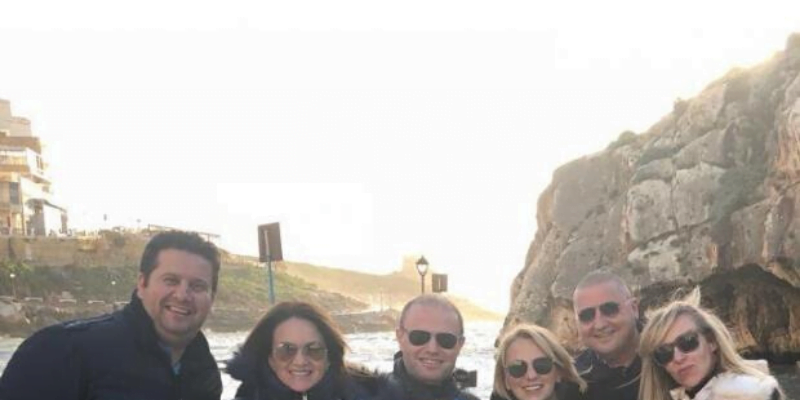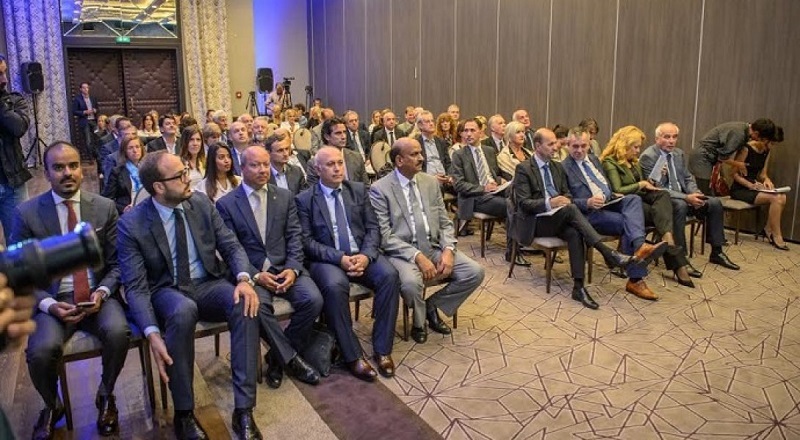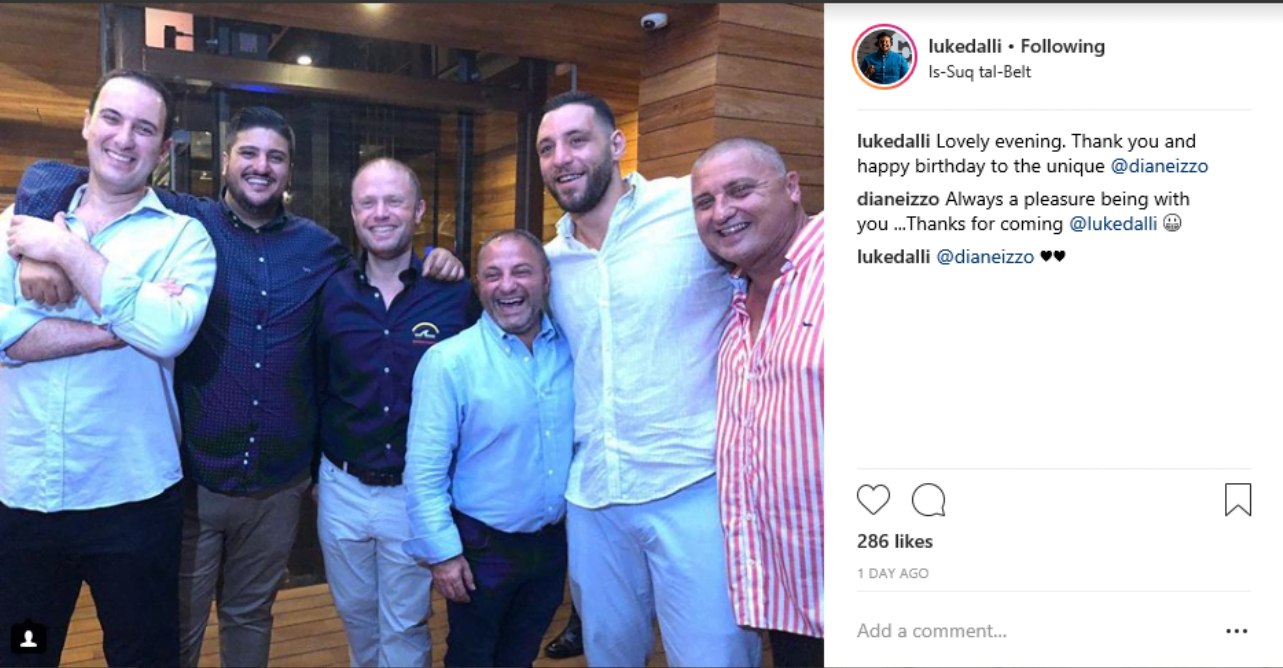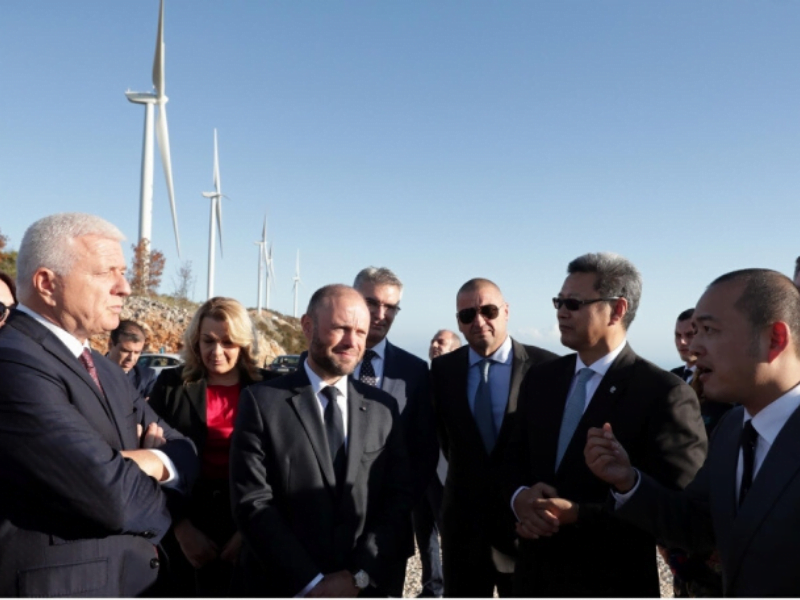In January 2019, Karl Izzo was appointed ambassador to Montenegro. The appointment was widely criticised since Izzo has no diplomatic experience and his credentials are limited to his position as a coach for Malta’s water polo team. So why did Joseph Muscat choose him?
That question is now in focus again after what The Shift revealed about Enemalta’s involvement in a corrupt energy deal in Montenegro, negotiated by Konrad Mizzi and the reason for Muscat’s last trip as Prime Minister.
It is also relevant in view of Vitals and, later, Steward’s approaches in Montenegro through the involvement of Castille-linked operators such as Shaukat Ali Abdul Ghafoor.
Questions on Izzo’s appointment focused on his close relations with Muscat when he was at the helm as the only reasonable explanation for nominating someone with zero diplomatic experience for the role.
Reports were accompanied by photos of Muscat and his wife Michelle, with Minister Edward Zammit Lewis and his wife, in the company of Karl and Diane Izzo. Zammit Lewis acted as the lawyer for Dizz Group.

(From left) Minister Edward Zammit Lewis, Michelle Muscat, Joseph Muscat, Diane Izzo, Karl Izzo, and Elena Farrugia, the wife of Zammit Lewis.
The media was right to question that closeness. Dizz Group, Diane’s enterprise, went from a few shops in Malta’s towns selling t-shirts for €2 and issues with the VAT department to a company with bonds listed on the Malta Stock Exchange (Prospects), selling the biggest brands during the time the Labour Party has been at the helm.
When everyone was preoccupied with Muscat meeting with international lawyer Saad Djebbar in the lobby at the Corinthia London hotel last January, the real meeting was happening somewhere else.
Think about it. Would any Prime Minister meet his lawyer in a hotel lobby? That was the distraction the media picked up. Meanwhile, Michelle Muscat and Diane Izzo were busy elsewhere. Yes, the Izzos accompanied the Muscats during that trip to London.
The Shift monitored Muscat’s dealings in London during that critical time when people were on the streets demanding Muscat’s resignation. What we have documented is another lawyer who emerged from a different door while everyone was focused on Muscat and Djebbar. Some time after Djebbar left the hotel, the other lawyer swiftly joined him in the car before its departure – he was wearing a black cap and informal clothes seemingly to hide his identity.
Despite being a prominent lawyer working with a London firm that has been used by Muscat to silence critics, his expertise is in asset management. What common assets do the Muscats hold with the Izzos? This meeting may well explain Dizz Group’s meteoric rise.
Izzo’s appointment as ambassador to Montenegro raises more questions as new findings emerge on the deals struck in Montenegro, not only on energy but also on hospitals. The honorary consul who preceded him, Tiziano Mousu, was key to the efforts of Vitals Global Healthcare and then Steward Healthcare for a deal on public hospitals there similar to Malta’s.

Tiziano Mousu (centre) at the pitch by Vitals for hospitals in Montenegro. The secret owner of the concession revealed by The Shift, Shaukat Ali Abdul Ghafoor is seen on his left, with Abdul Ghafoor’s relative to his right. The real owners of the hospitals’ concession were not known then.
The criteria for a diplomatic appointment in one of the most corrupt countries in Europe under Muscat’s administration are clear. The problem is that it was Malta’s new Prime Minister, Robert Abela, who defended these decisions in parliament as MP.
The Opposition had voted against the appointment, but Abela was the one to defend the government’s decision in parliament, together with Labour MP Glenn Bedingfield. Attempting to justify Muscat’s decisions and sell them to the public, even if it involved discrediting critics who got it right, was their role under Muscat.
“Qualifications were not the only consideration when it came to the appointment of ambassadors,” Abela had said in parliament.
The question is, what were the other considerations? Was having an ambassador who would enable a corrupt deal one of them?

The Shift has been investigating the energy deal involving a wind farm in Montenegro – a launch Muscat made when he travelled to Montenegro while people were protesting in the streets on almost a daily basis calling for his resignation.
The Mozura wind farm project in Montenegro was haunted by allegations of corruption from day one. Intermediaries involved in the project told The Shift: “Those in the government of Montenegro found the people of their kind in Malta who they could do business with and split the proceeds”.
One of the stakeholders even wrote to Muscat a month ago, pleading for him to withdraw from the corrupt contract and sell his deal to his own people if it was so great. Except, Muscat did, with several other deals, over and over again. Deals like Electrogas, Vitals/Steward and ITS that continue to defy accountability.
The investigation also uncovered a complex set up of offshore companies that have now become the trademark of every deal negotiated by Mizzi, with Muscat and Keith Schembri’s approval.
Originally touted in Montenegro as an investment from an EU Member State (Malta), it is effectively controlled by the Chinese State thanks to Enemalta.
Evidence shows it is a clear case of corruption. But what action will the new prime minister take? Abela promised continuity. He wasn’t joking.













